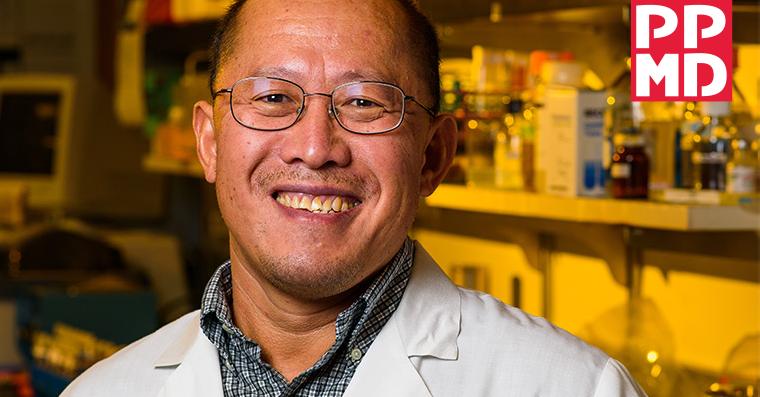
PPMD is excited to award the University of Missouri School of Medicine a bridge grant for $31,500 to continue evaluating CRISPR therapy in a pre-clinical model of Duchenne. The project is led by Dongsheng Duan, PhD, Margaret Proctor Mulligan Professor in Medical Research at the MU School of Medicine.
Gene editing utilizing AAV-mediated CRISPR/Cas9 is an area of therapeutic development that has significant potential for treating individuals with Duchenne. The use of the CRISPR/Cas9 technology in Duchenne is still in early stages, with various strategies being investigated for how best to modify the DMD gene to restore production of the dystrophin protein. While there is excitement in the potential that gene editing holds, the Duchenne community recognizes that there are many questions that still remain unanswered.
One such question is around the topic of safety. Specifically, if the Cas9 enzyme, which is a bacterial protein, will cause an immune response when it is delivered throughout the body to reach the muscle. Dr. Duan will continue his ongoing investigation into this question by exploring immune responses from systemic delivery of AAV-mediated CRISPR/Cas9 in a large pre-clinical model.
Eric Camino, PhD, PPMD’s Vice President of Research and Clinical Innovation, explains why funding research like Dr. Duan’s study is so critical at this juncture:
“Duchenne research has progressed significantly over the past several years, with strategies such as gene editing holding incredible possibilities for our community. The work Dr. Duan is doing will contribute greatly to our understanding of how we can safely translate CRISPR/Cas9 gene editing strategies to patients with Duchenne.”
Dr. Duan and his team appreciate the continued support of PPMD:
“We greatly appreciate the support from PPMD and the Duchenne community. CRISPR/Cas9 editing therapy has the potential to permanently repair the mutated DMD gene. Studies from many groups, including us, have demonstrated efficient restoration of dystrophin in patient cells and rodent models. Yet, little is known about the immune response to the bacterial derived Cas9 protein. A better understanding on Cas9 immunity will pave the way to the translation of this promising therapeutic modality.”
To learn more about PPMD’s robust Research Strategy, funding initiatives and strategies for accelerating drug development, click here.



 by: Parent Project Muscular Dystrophy
by: Parent Project Muscular Dystrophy

